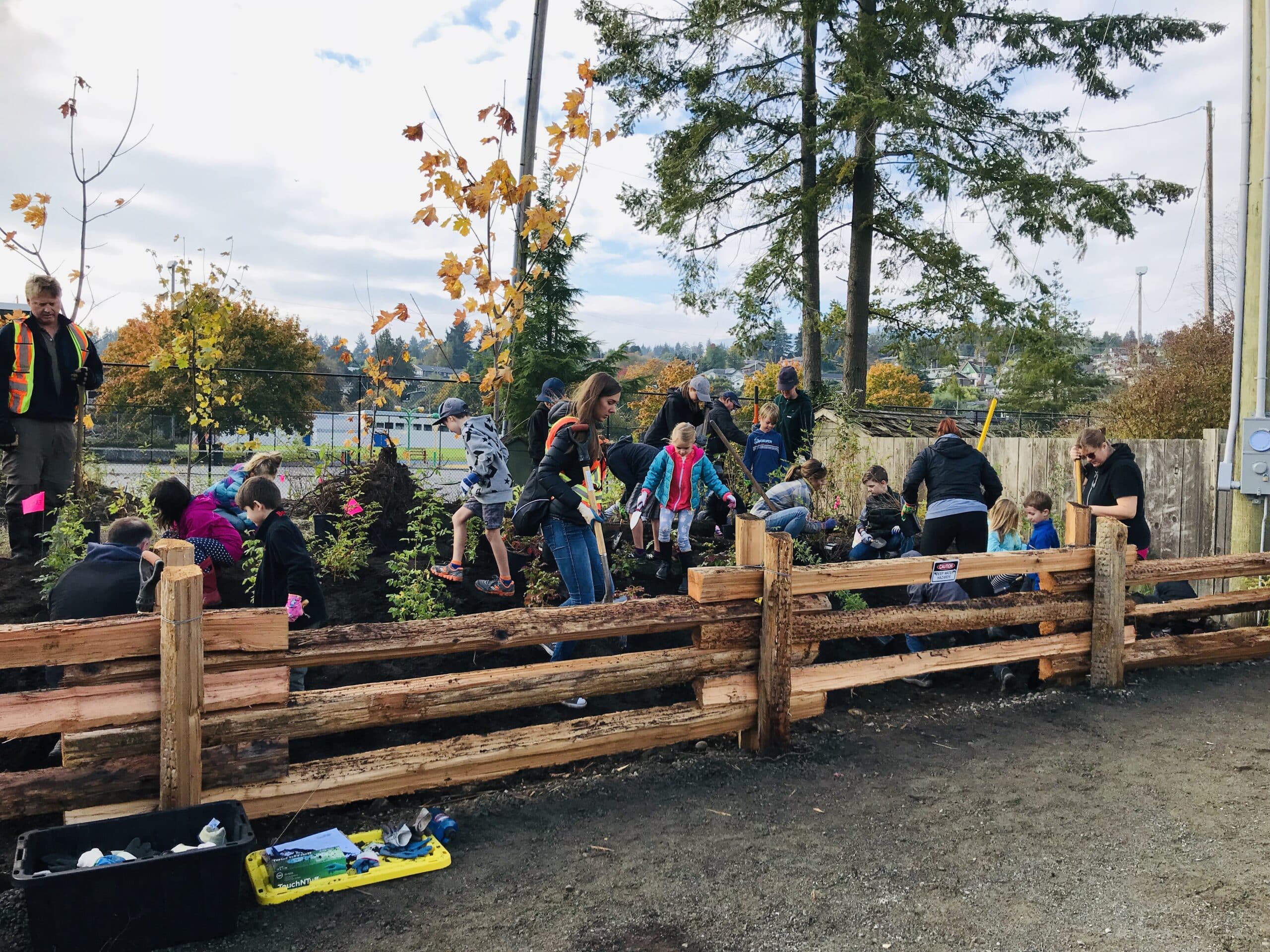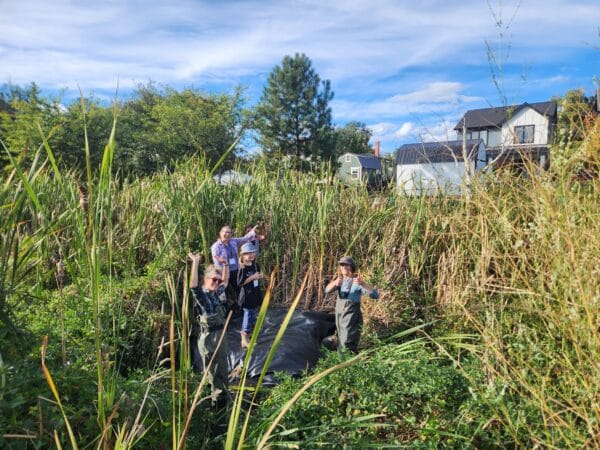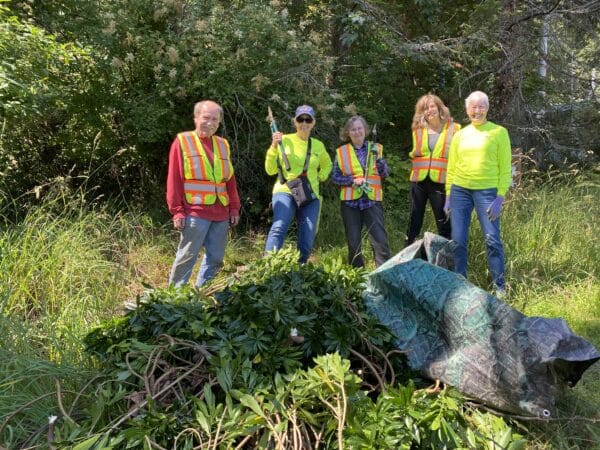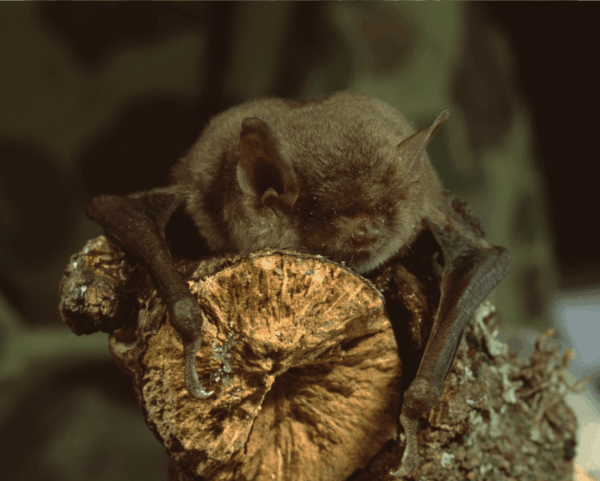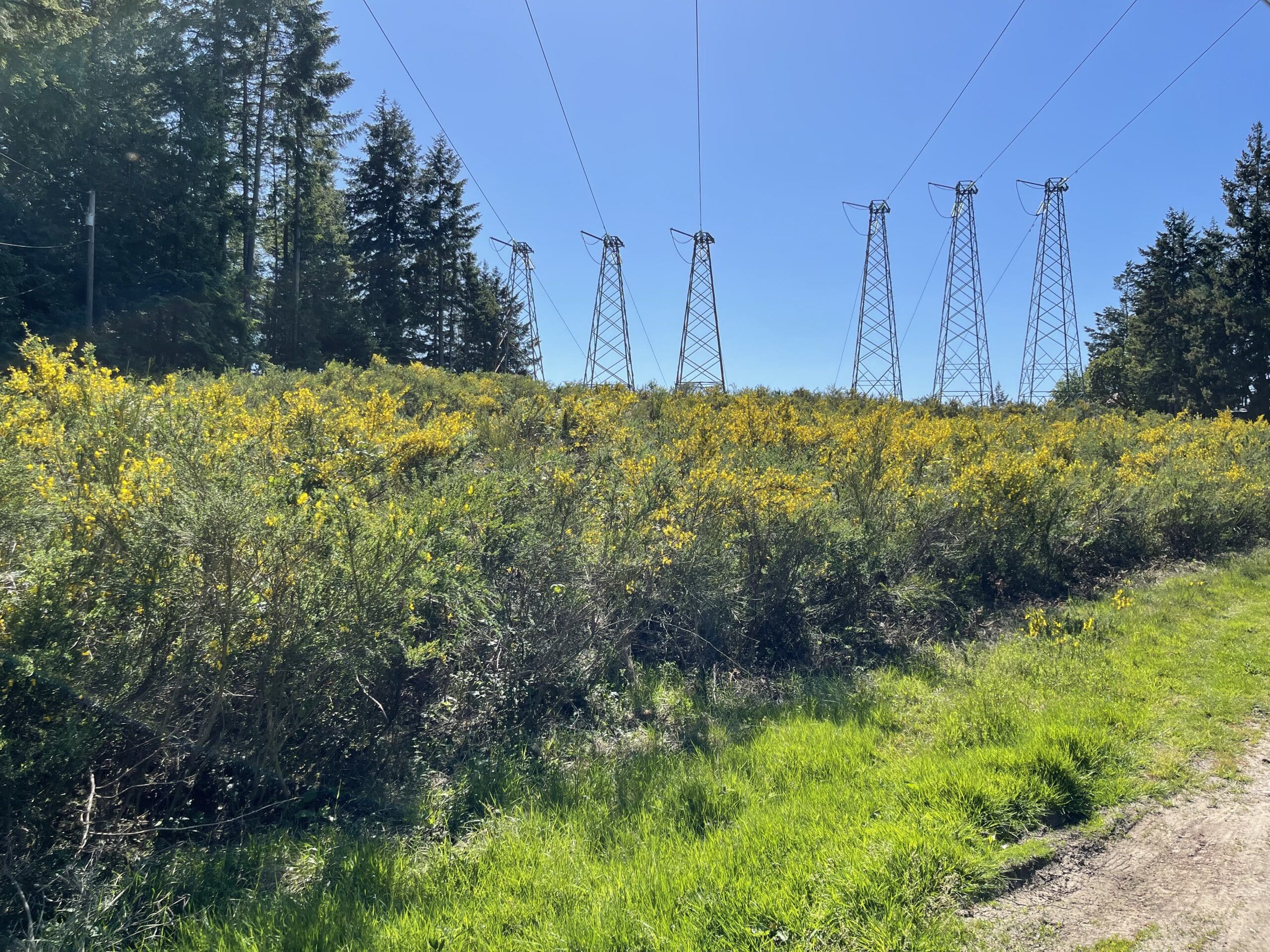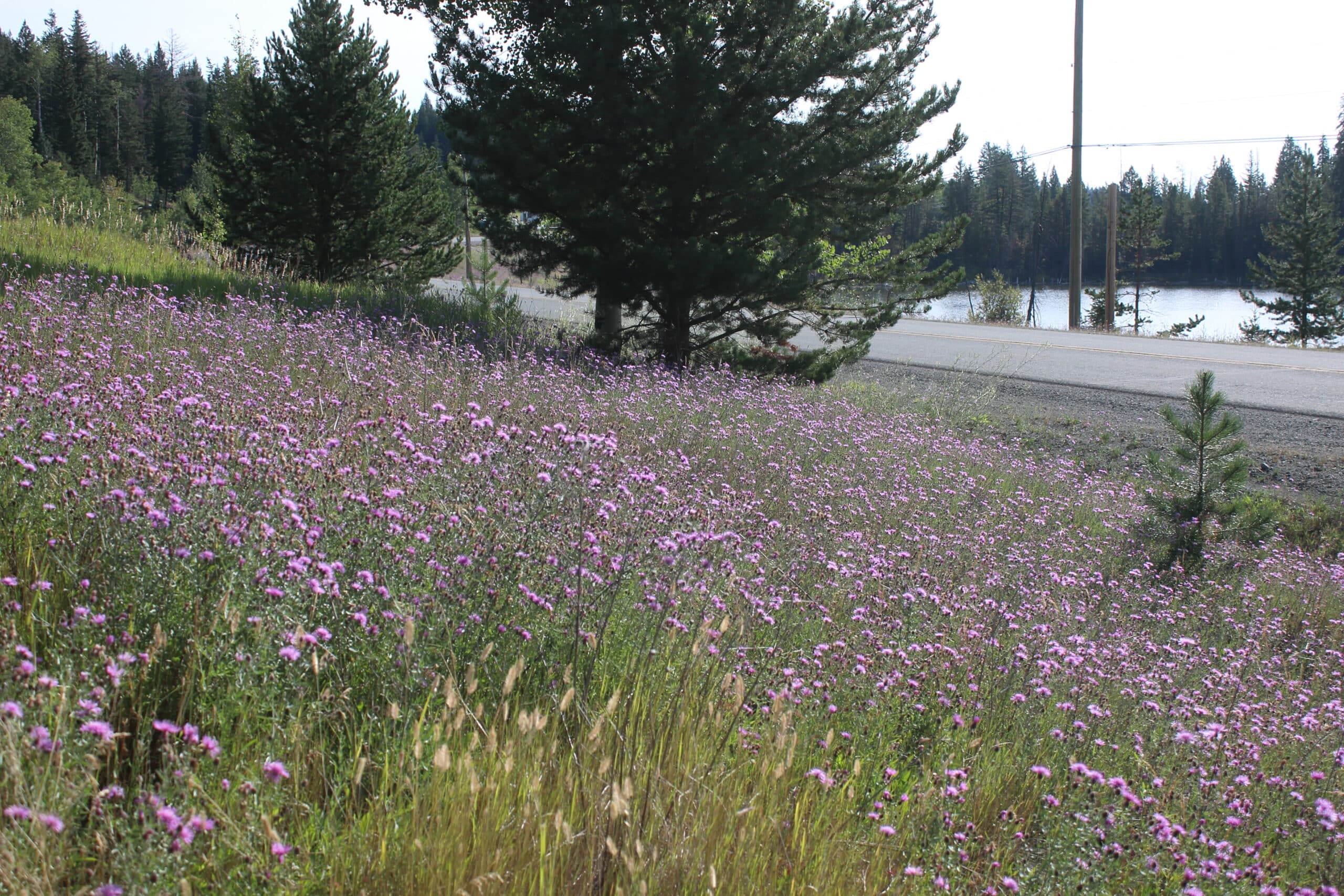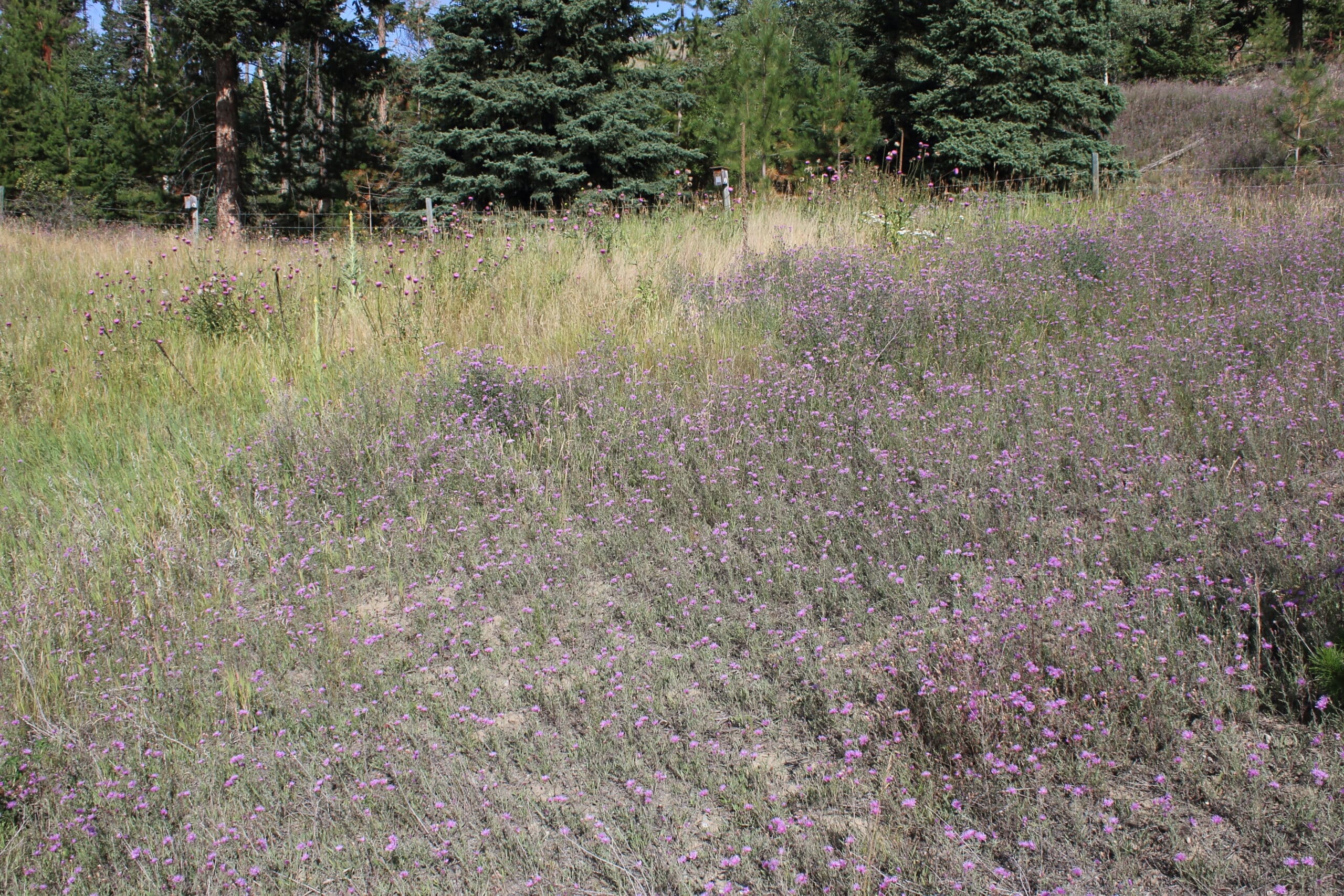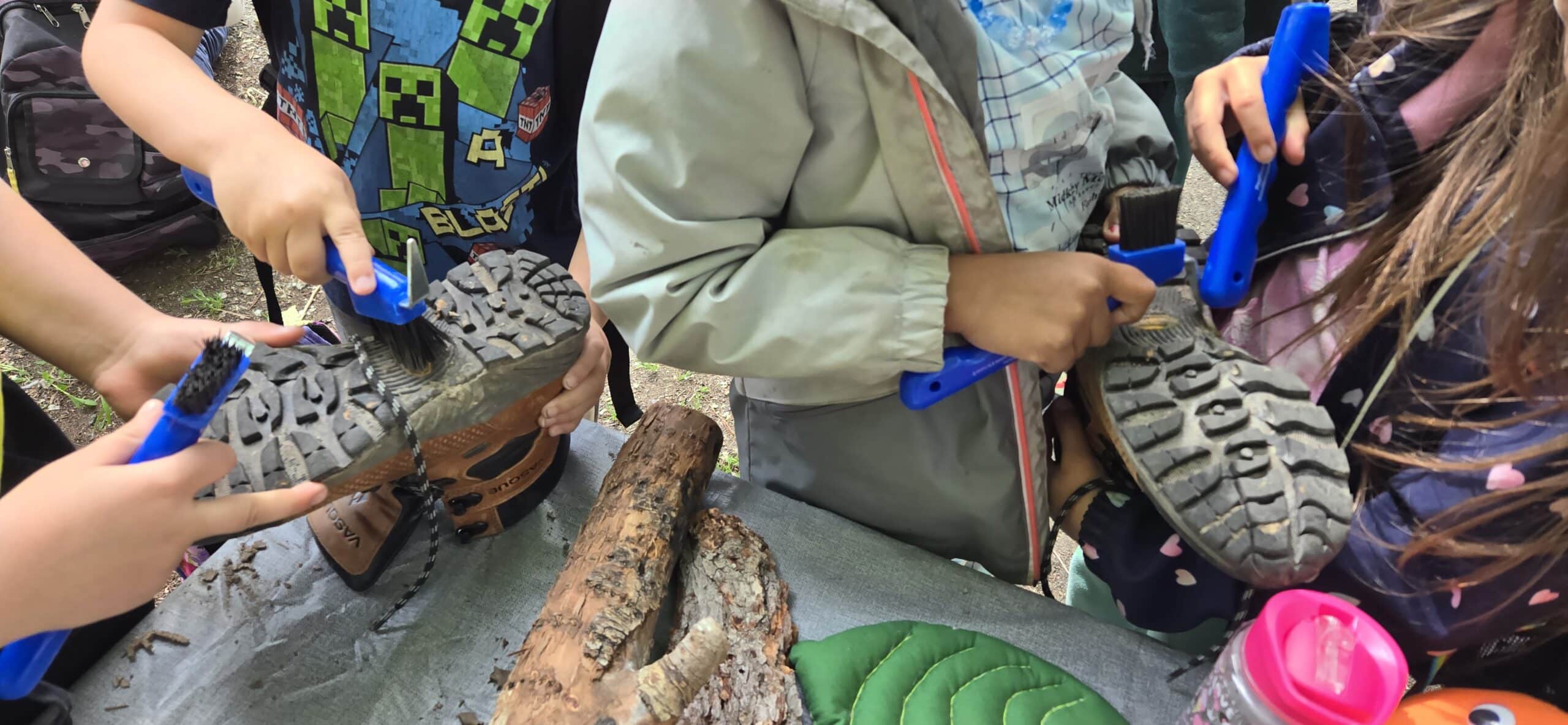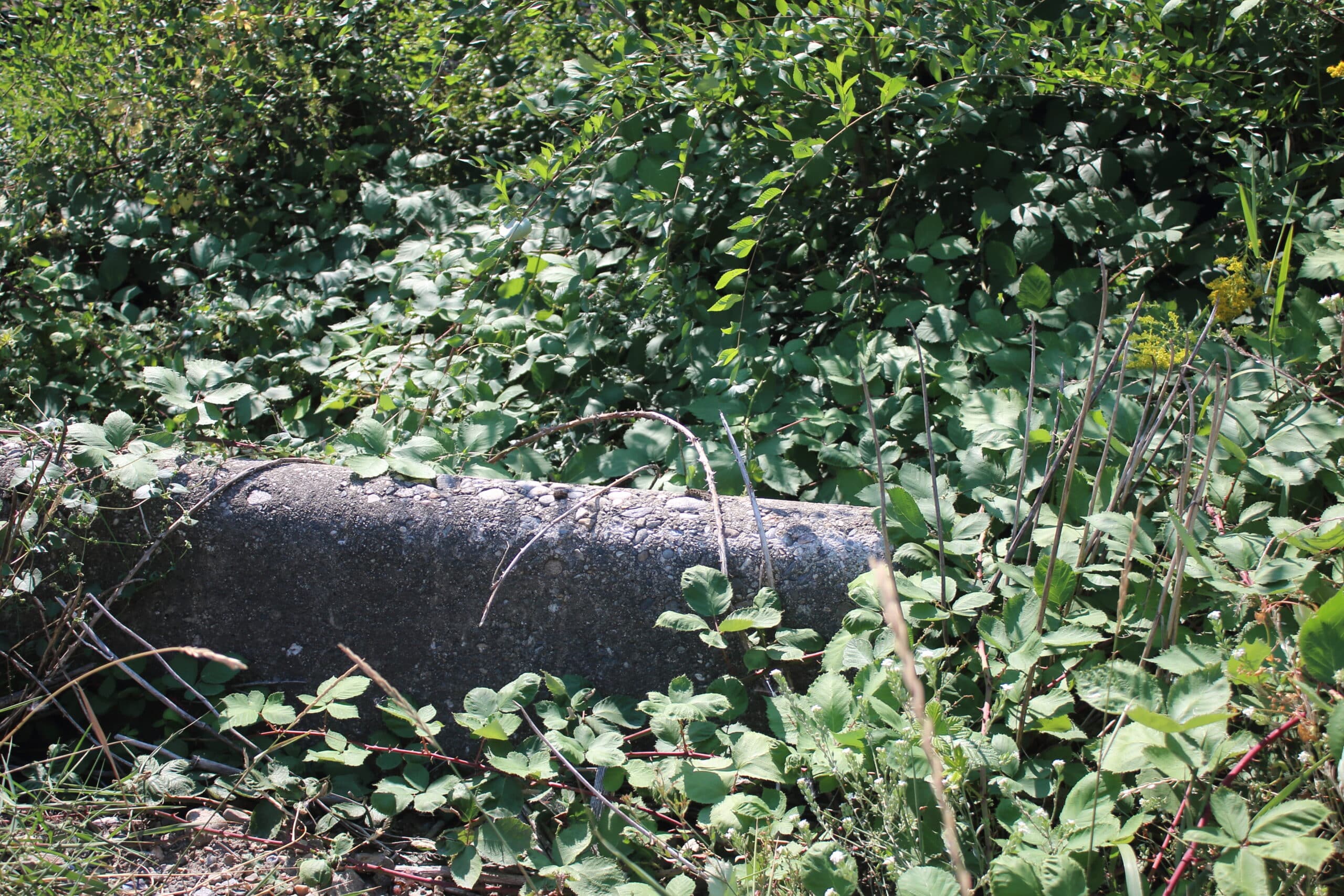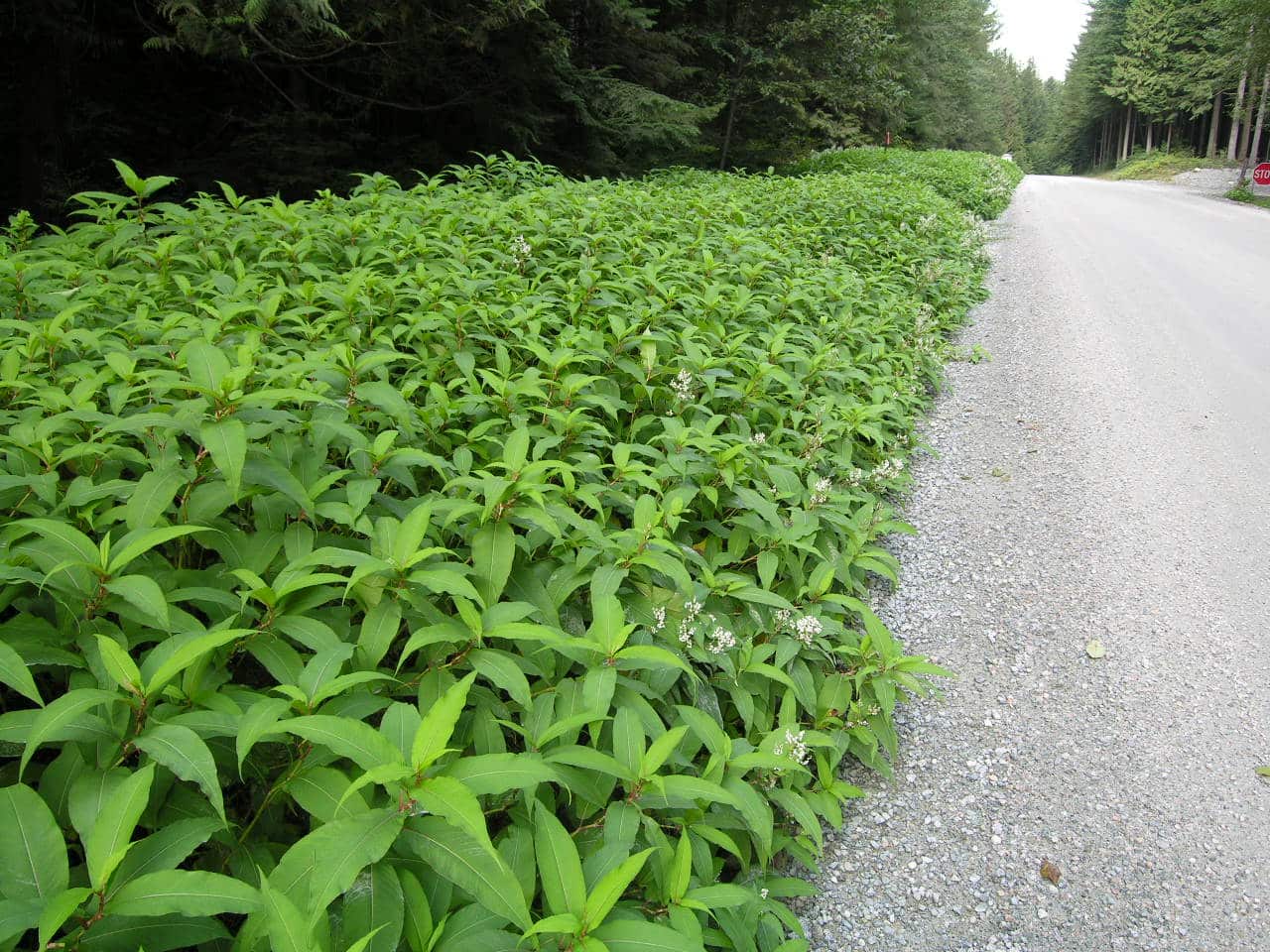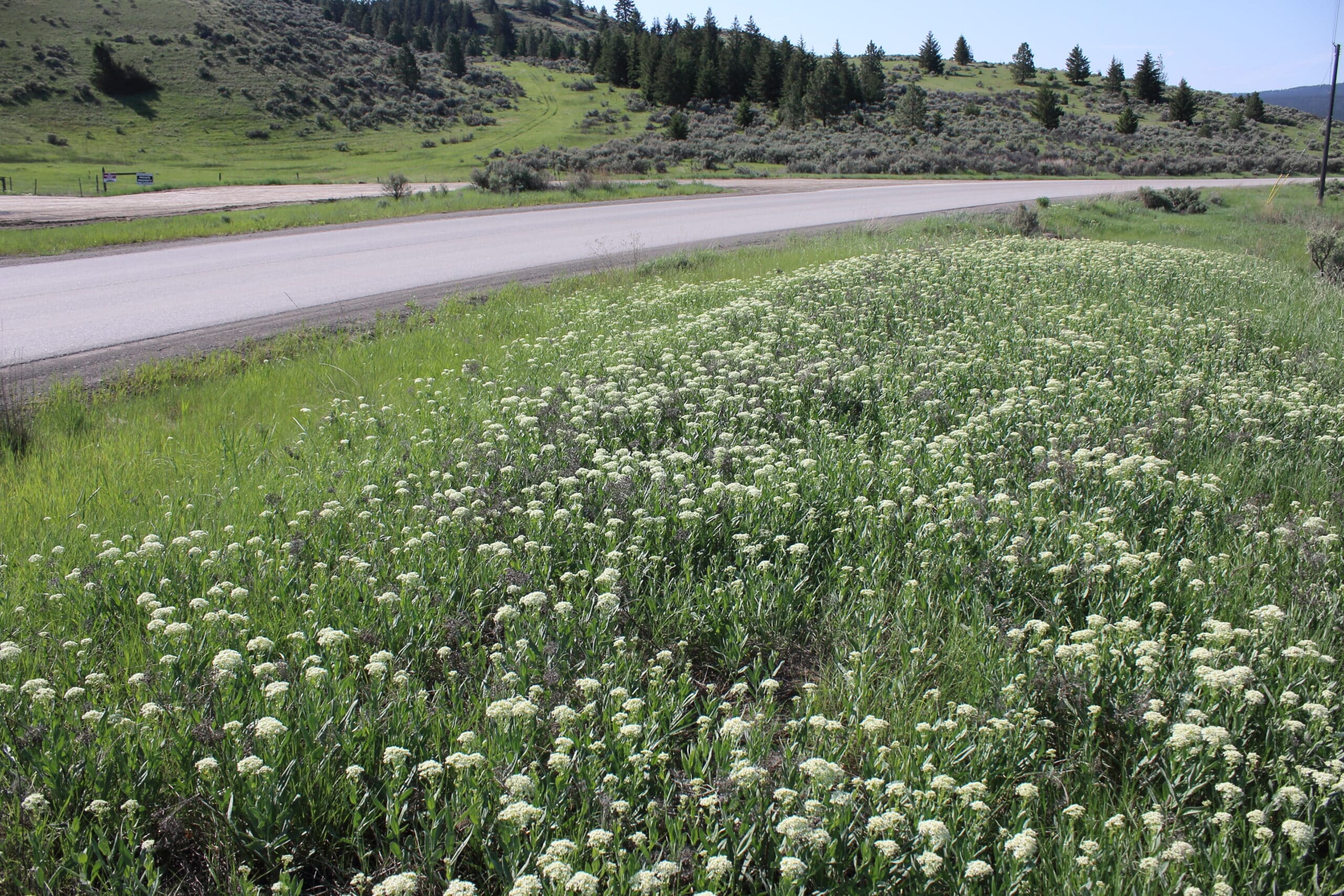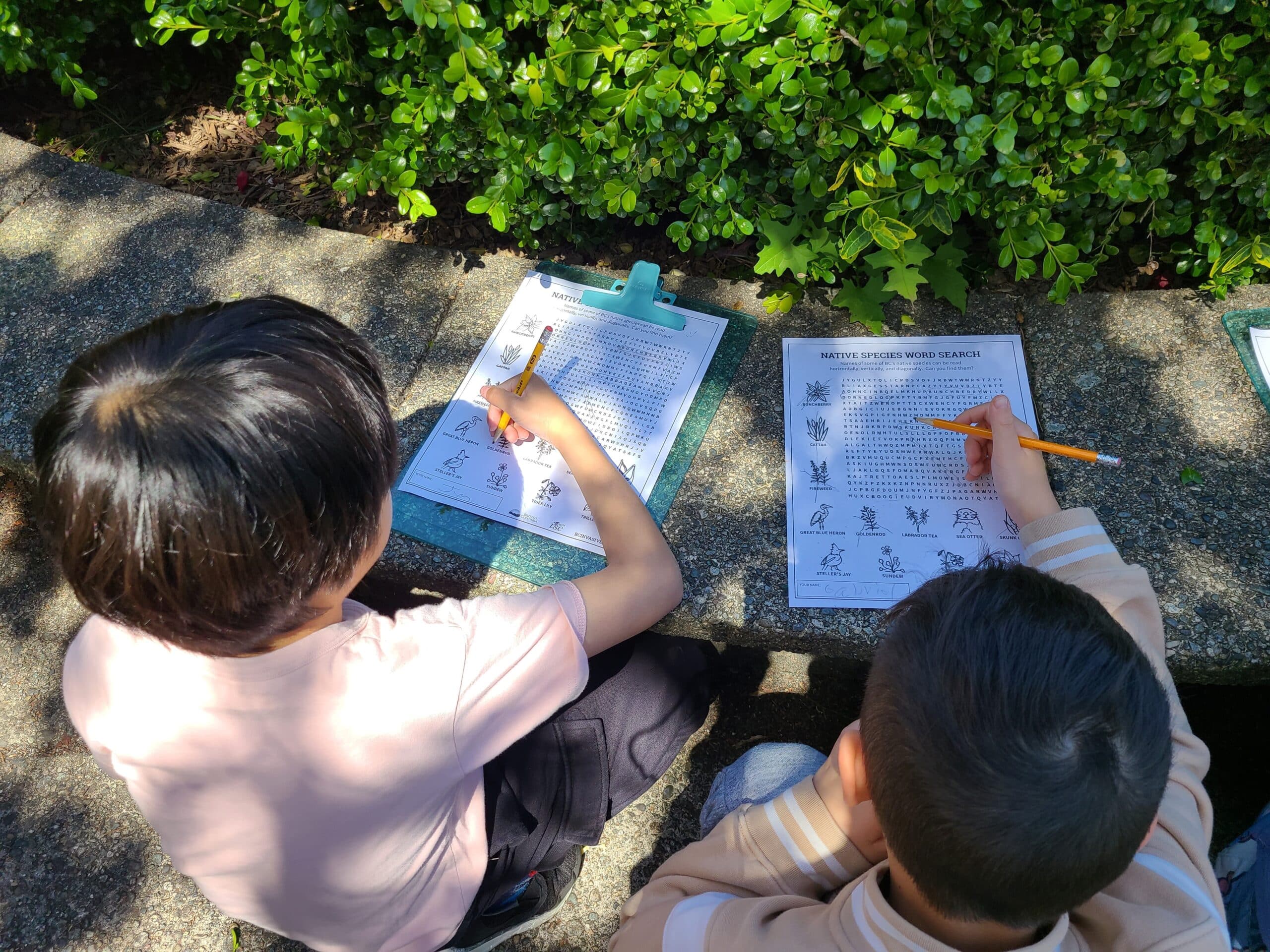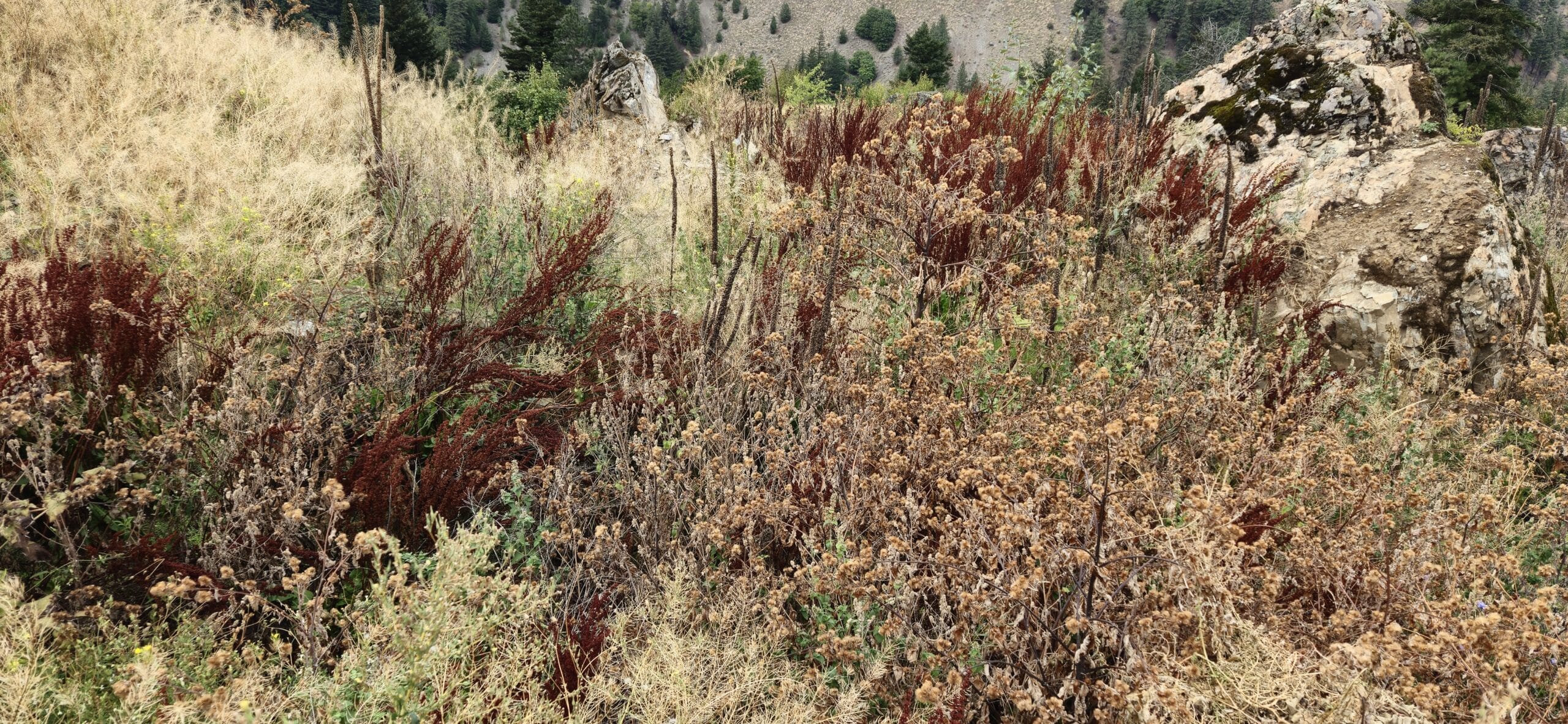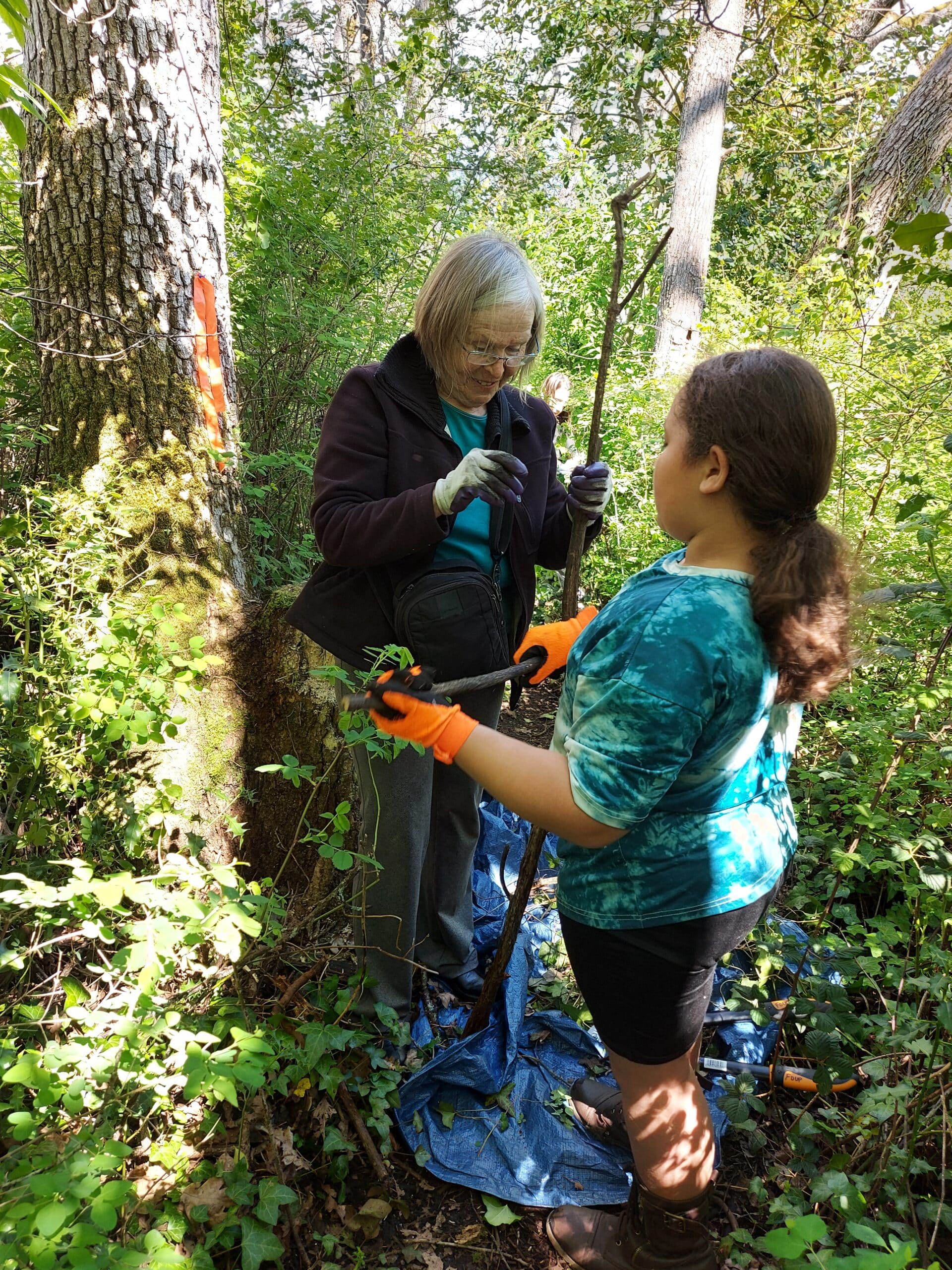By Lisa Houle | April 18, 2023
It takes a village to raise a child. When teaching children hands-on invasive species management skills, it takes collaboration between a proactive municipality, dedicated teachers, and a supportive Invasive-Wise Education team from ISCBC!
The City of Nanaimo’s Department of Parks, Recreation and Culture on Vancouver Island is a model for municipalities working collaboratively with schools. They continue to grow and foster their neighbourhood greenspaces stewardship initiative between their department and local schools.
“With staff resources focused on maintaining trees, turf, boulevards, irrigation, garden beds, hanging baskets, and ornamental landscapes, there is little time available for dealing with invasive plants,” said Amanda Daly, Recreation Coordinator for the City of Nanaimo. “We are challenged with an increase in invasive plants in our parks and we have been targeting specific destination parks with our volunteer community throughout the year.”
The Parks Department is thankful for the hands-on work currently provided by nine local schools – four elementary and five high schools. The schools have either adopted nearby parks through the Adopt-A-Park Program, or have run work parties in nearby parks or trails. Adopting a park is a two-year commitment, with groups visiting the park, a minimum of six times per year.
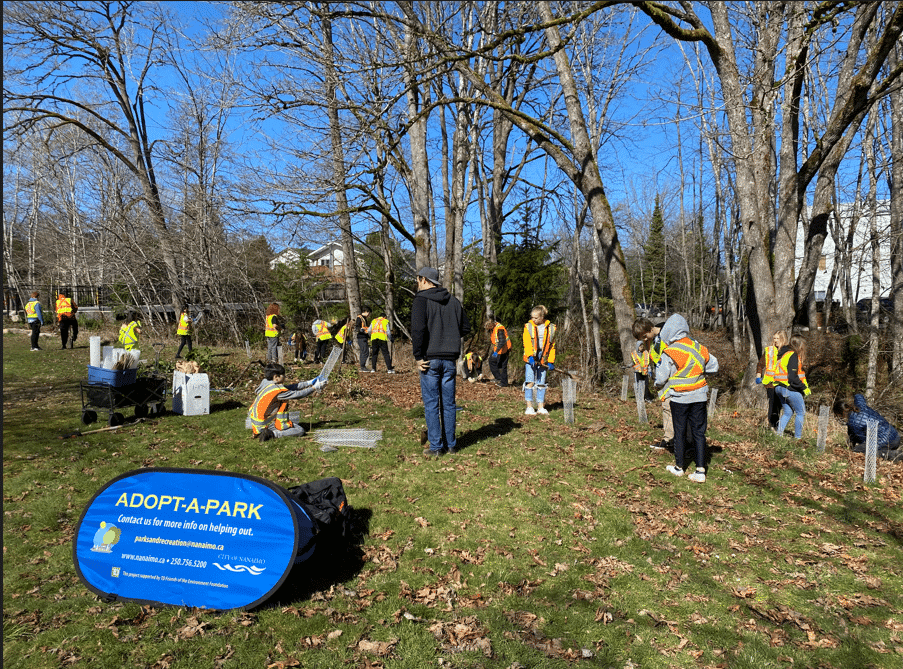
“Developing young stewards contributes to an appreciation and respect for the natural environment, as they develop an awareness of the community around them and how we are all connected. Teaching youth about stewardship in our parks and greenspaces will hopefully have a trickle effect on other members of their families and the surrounding community,” said Amanda.
Parks staff teach appropriate stewardship activities for specific parks and greenspaces. Training includes invasive plant removal techniques, effective methods to replant with native species, as well as the precautions that need to be taken. The Parks department is solely responsible for removing noxious invasive plants, chemical treatments as required, and the removal of invasive piles and their disposal.
Groups who take on this level of stewardship are recognized with an Adopt-A-Park sign with their school’s name in the park, access to tools and equipment for their work parties, and a certificate of appreciation for their involvement in environmental stewardship.
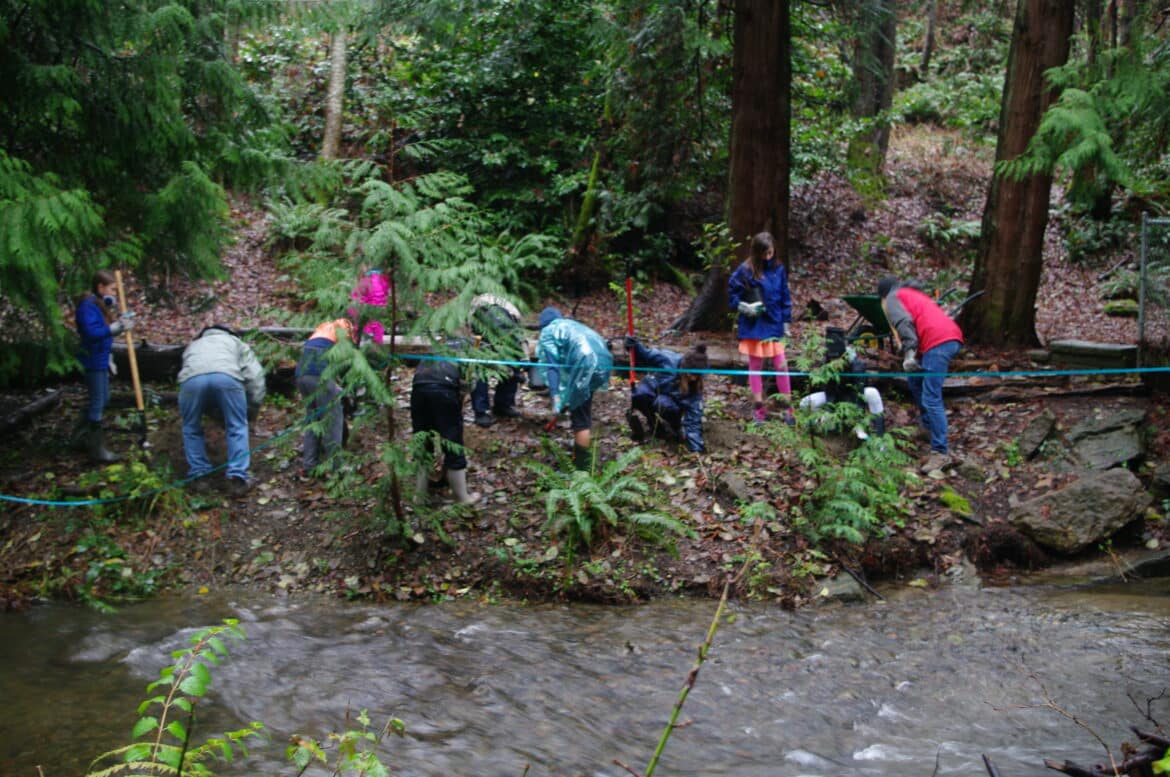
École Quarterway Elementary School in Nanaimo is the most recent school to join the Adopt-A-Park program. They will be stewarding a park in Nanaimo for the first time in May, following a safety plan developed between the school and the City of Nanaimo.
“This is the type of involvement that is so important for students. Since COVID, students are less connected to each other and the land. Connecting with nature is a way for educators to engage students and support health regulation,” said Dominique Sullivan, Teacher-Librarian at École Quarterway Elementary School. “We have adopted Koram Park on Townsite Road in Nanaimo and would like to return the park to native plants. We are weaving in Indigenous ways of knowing and being and will have a land blessing to celebrate the land. This will help our students to develop a greater respect of nature and their place in it.”
Dominique is happy her school made the connection with ISCBC.
“I am new to invasive species and ISCBC gave me the confidence to embark on this collaborative project with the City of Nanaimo. We’ve received incredible support and resources through ISCBC’s Invasive-Wise Education program – and in French! I’m so excited for our teachers,” she said.
ISCBC encourages other schools to reach out as well.
“May is Invasive Species Action Month (ISAM) and we’re excited to support Dominique, her school and school district,” said Stephanie Weinstein, Senior Lead, Education at ISCBC. “My colleague, Jennifer Hegan, and I are supporting teachers through our free Invasive-Wise Education program. We offer virtual school presentations, teacher professional development, curriculum-linked resources, and support classes in becoming land stewards by helping them to connect with local partners.”
As École Quarterway Elementary School is a bilingual school, ISCBC will provide students from Dominique’s class with both French and English worksheets to further enhance their learning. This is just a small part of what ISCBC’s Invasive-Wise education team offers to schools.
“This is an incredible collaboration between École Quarterway Elementary School and the City of Nanaimo, and we hope this inspires other teachers to take action on invasive species,” said Stephanie. “If there are teachers looking for more support in the classroom/schoolyard to build on their outdoor learning, ISCBC can provide virtual presentations in French and English. Our lesson plans are completely free. Teachers just need to sign up to get access to our services.”

The City of Nanaimo Parks Department also encourages schools to reach out to Adopt-A-Park, happy to help schools locate nearby parks and trails. They know the benefits of being involved in this initiative have long-lasting results.
“There is nothing more rewarding than having a student return to a park they’ve been involved with and seeing how proud they are of the result of a tree plant or restoration project,” said Amanda. “Partnerships between the schools and Parks is a win-win for both parties.”
Lisa is a Communications and Outreach Coordinator at ISCBC. She values a diverse environment and connecting with others about environmental protection. In her spare time Lisa enjoys spending time at the ocean and beach combing for sea glass. You can reach Lisa at lhoule@bcinvasives.ca
Share


